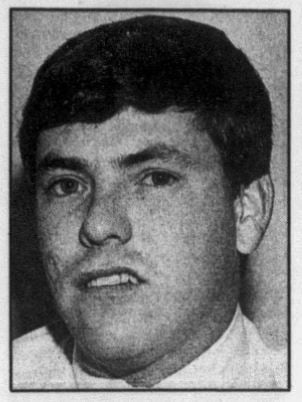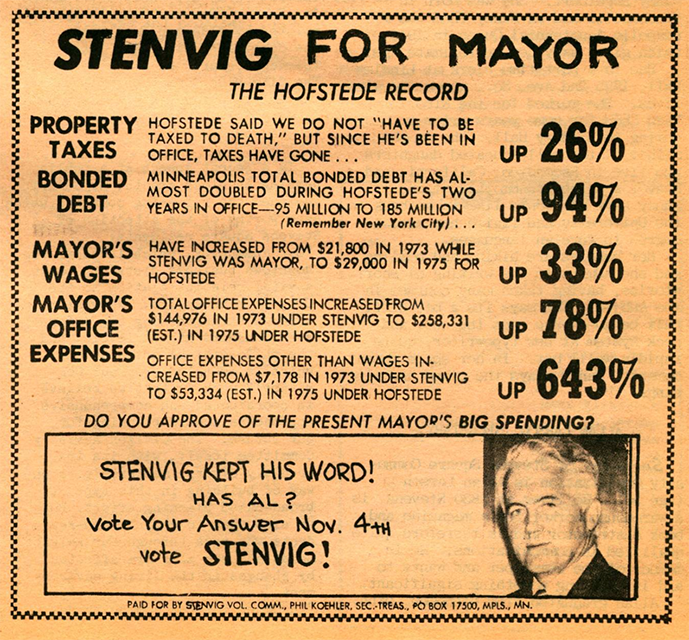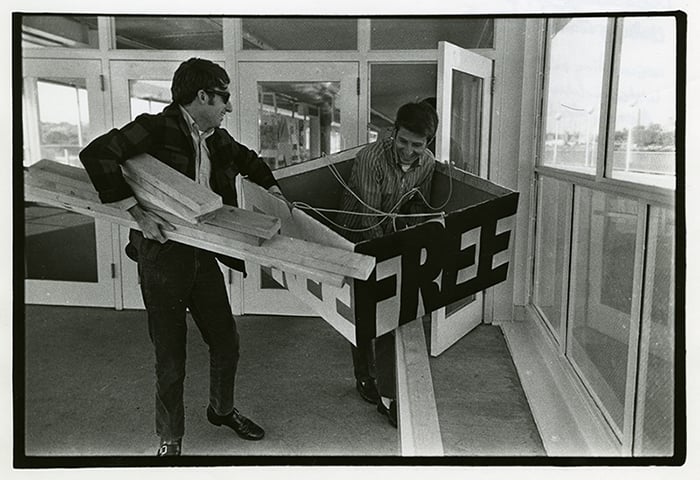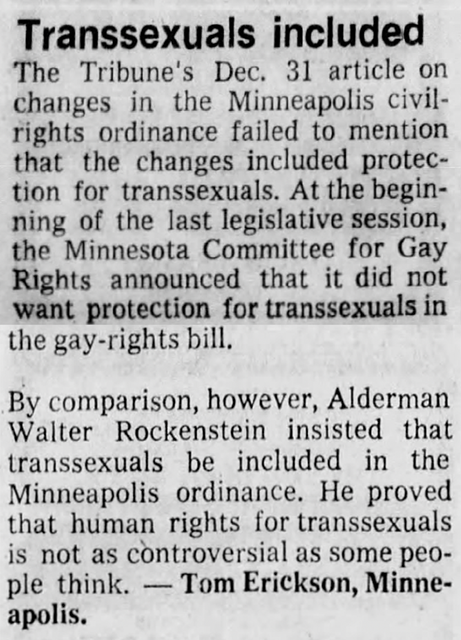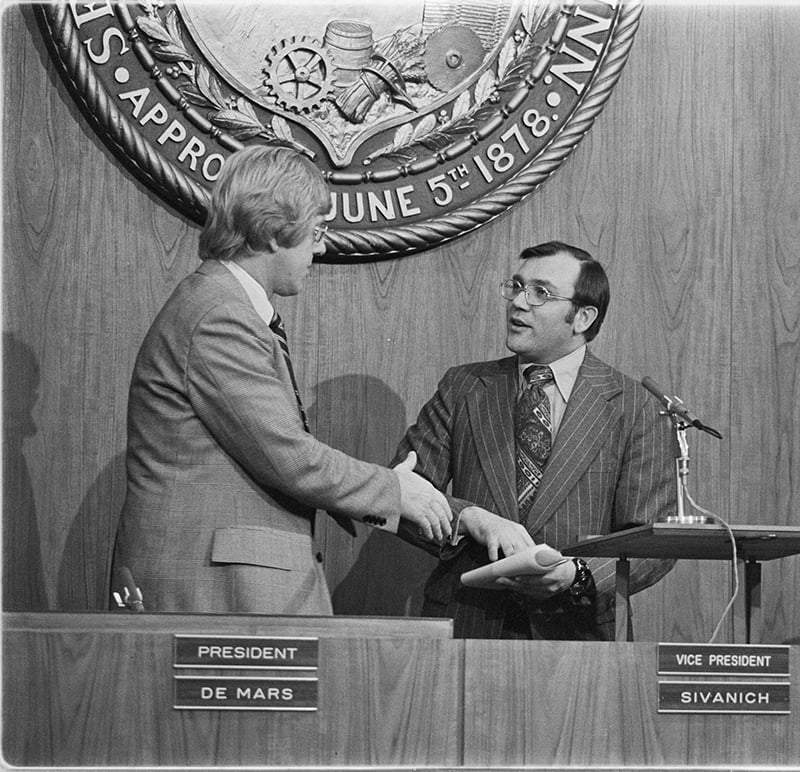1975 Minneapolis Non-Discrimination Ordinance
Bibliography
Baker, Jack. Letter to Representative Bella Abzug, Washington, DC, September 26, 1974. “Gay Rights Legislation 2,” Box 10, Michael McConnell files, Tretter-183. Jean-Nickolaus Tretter Collection in GLBT Studies, University of Minnesota, Minneapolis.
https://archives.lib.umn.edu/repositories/13/resources/2022
——— . “‘Ordinance’ Doesn’t Exist.” Letter to the editor, Minneapolis Star, October 1, 1974.
Barry, Betsy. “St. Paul Passes “Gay-rights” Rule After Emotional Pleas, Protests.” Minneapolis Star, July 17, 1974.
Bjornson, Lars. “Broad Protection Offered in Minneapolis.” The Advocate, April 10, 1974.
“A Broadened Civil Rights Code.” Minneapolis Star, September 26, 1974.
Campbell, Tim. “Basis for Gay Discrimination.” Letter to the editor, Minneapolis Tribune, April 26, 1974.
——— . “Best First.” Minnesota Daily, May 16, 1975.
——— . “Equal Rights for Transexuals [sic], Transvestites.” Minnesota Daily, February 5, 1976.
“Changes in the Civil-rights Ordinance.” Minneapolis Tribune, December 26, 1975.
Coleman, Milton. “Parker Questioned on Women’s Rights.” Minneapolis Star, January 22, 1976.
Coleman, Nick. “Council Enacts ‘Gay Rights Ordinance.’” Minneapolis Tribune, March 30, 1974.
DeMars, Louis. Interview with the author, January 31, 2025.
Endean, Steve, and Vicki L. Eaklor, ed. Bringing Lesbian and Gay Rights Into the Mainstream: Twenty Years of Progress. New York: Harrington Park Press, 2006.
Erickson, Tom. “Transsexuals Included.” Letter to the editor, Minneapolis Tribune, January 14, 1976.
Felien, Ed. Interview with the author, September 12, 2024.
Ford, Keith. Phone conversation with the author, February 24, 2025.
“Gay-ordinance Opponents to Meet.” Minneapolis Tribune, April 6, 1974.
Gelfand, M. Howard. “Council Strengthens Rights Law, Takes Rights-chief Approval Power.” Minneapolis Tribune, December 31, 1975.
Halfhill, Robert. “Changes in Mpls. Gay Rights Law Proposed.” Gaily Planet, August 20, 1980. Tretter Collection in GLBT Studies, University of Minnesota, St. Paul.
Hughes, Greg. “Coon Rapids Cuts Gay Rights Clause.” St. Paul Pioneer Press, May 24, 1978.
Kessler, Pat. “Gay Rights Defeated in St. Paul.” Minnesota Public Radio, April 25, 1978.
https://archive.mpr.org/stories/1978/04/25/gay-rights-defeated-in-st-paul
[Laura]. Interview with Margaret Deirdre O’Hartigan, September 24, 1995.
McConnell, Michael. Interview with the author, May 24, 2024.
——— . Interview with the author, August 16, 2024.
“Minneapolis Gay-rights Law Should Stand.” Minneapolis Tribune, June 10, 1977.
Munnich, Lee, Earl Netwal, and Walter “Rocky” Rockenstein. Interview with the author, September 23, 2024.
O’Hartigan, Margaret Deirdre. Interview with the author, October 11, 2023.
——— . Interview with the author, November 3, 2023.
——— . Interview with the author, January 5, 2024.
——— . Interview with the author, January 19, 2024.
Perry, Suzanne. “City’s Gay Rights Law: Strong Only on Paper?” Minneapolis Star, November 6, 1978.
“Pie Gets in Your Eyes.” Metropolis, August 2, 1977.
Proceedings of the City Council of the City of Minneapolis, 1974. Hennepin County Library Special Collections, Minneapolis.
Proceedings of the City Council of the City of Minneapolis, 1975. Hennepin County Library Special Collections, Minneapolis.
Proceedings of the City Council of the City of Minneapolis, 1976. Hennepin County Library Special Collections, Minneapolis.
“Replacing the Coordinator.” Minneapolis Star, December 30, 1975.
“Rights Ordinance Gets More Muscle from City Council.” Minneapolis Star, December 30, 1975.
Sorensen, Harley. “City Council Panel Backs Ordinance Against Sex Bias.” Minneapolis Tribune, March 22, 1974.
——— . “Council May Outlaw Discrimination Against Homosexuals.” Minneapolis Tribune, March 15, 1974.
Tretter 183
Michael McConnell Files
Jean-Nickolaus Tretter Collection in GLBT Studies, Elmer L. Andersen Library, University of Minnesota, Minneapolis
https://archives.lib.umn.edu/repositories/13/resources/2022
Tretter 219
Stephen Endean Papers
Jean-Nickolaus Tretter Collection in GLBT Studies
Elmer L. Andersen Library, University of Minnesota, Minneapolis
https://archives.lib.umn.edu/repositories/13/resources/2040
Tretter 397
John Hustad Papers
Jean-Nickolaus Tretter Collection in GLBT Studies
Elmer L. Andersen Library, University of Minnesota, Minneapolis
https://archives.lib.umn.edu/repositories/13/resources/7056
“Union Urges Repeal of Homosexual Rights.” Minneapolis Star, July 22, 1977.
Chronology
1850s–1960s
1966
1969–1972
1973
November 1973
February 22, 1974
March 14, 1974
March 15–28, 1974
March 29, 1974
April 1974
July 1974
Spring 1975
December 30, 1975
April 1978
1993
Bibliography
Baker, Jack. Letter to Representative Bella Abzug, Washington, DC, September 26, 1974. “Gay Rights Legislation 2,” Box 10, Michael McConnell files, Tretter-183. Jean-Nickolaus Tretter Collection in GLBT Studies, University of Minnesota, Minneapolis.
https://archives.lib.umn.edu/repositories/13/resources/2022
——— . “‘Ordinance’ Doesn’t Exist.” Letter to the editor, Minneapolis Star, October 1, 1974.
Barry, Betsy. “St. Paul Passes “Gay-rights” Rule After Emotional Pleas, Protests.” Minneapolis Star, July 17, 1974.
Bjornson, Lars. “Broad Protection Offered in Minneapolis.” The Advocate, April 10, 1974.
“A Broadened Civil Rights Code.” Minneapolis Star, September 26, 1974.
Campbell, Tim. “Basis for Gay Discrimination.” Letter to the editor, Minneapolis Tribune, April 26, 1974.
——— . “Best First.” Minnesota Daily, May 16, 1975.
——— . “Equal Rights for Transexuals [sic], Transvestites.” Minnesota Daily, February 5, 1976.
“Changes in the Civil-rights Ordinance.” Minneapolis Tribune, December 26, 1975.
Coleman, Milton. “Parker Questioned on Women’s Rights.” Minneapolis Star, January 22, 1976.
Coleman, Nick. “Council Enacts ‘Gay Rights Ordinance.’” Minneapolis Tribune, March 30, 1974.
DeMars, Louis. Interview with the author, January 31, 2025.
Endean, Steve, and Vicki L. Eaklor, ed. Bringing Lesbian and Gay Rights Into the Mainstream: Twenty Years of Progress. New York: Harrington Park Press, 2006.
Erickson, Tom. “Transsexuals Included.” Letter to the editor, Minneapolis Tribune, January 14, 1976.
Felien, Ed. Interview with the author, September 12, 2024.
Ford, Keith. Phone conversation with the author, February 24, 2025.
“Gay-ordinance Opponents to Meet.” Minneapolis Tribune, April 6, 1974.
Gelfand, M. Howard. “Council Strengthens Rights Law, Takes Rights-chief Approval Power.” Minneapolis Tribune, December 31, 1975.
Halfhill, Robert. “Changes in Mpls. Gay Rights Law Proposed.” Gaily Planet, August 20, 1980. Tretter Collection in GLBT Studies, University of Minnesota, St. Paul.
Hughes, Greg. “Coon Rapids Cuts Gay Rights Clause.” St. Paul Pioneer Press, May 24, 1978.
Kessler, Pat. “Gay Rights Defeated in St. Paul.” Minnesota Public Radio, April 25, 1978.
https://archive.mpr.org/stories/1978/04/25/gay-rights-defeated-in-st-paul
[Laura]. Interview with Margaret Deirdre O’Hartigan, September 24, 1995.
McConnell, Michael. Interview with the author, May 24, 2024.
——— . Interview with the author, August 16, 2024.
“Minneapolis Gay-rights Law Should Stand.” Minneapolis Tribune, June 10, 1977.
Munnich, Lee, Earl Netwal, and Walter “Rocky” Rockenstein. Interview with the author, September 23, 2024.
O’Hartigan, Margaret Deirdre. Interview with the author, October 11, 2023.
——— . Interview with the author, November 3, 2023.
——— . Interview with the author, January 5, 2024.
——— . Interview with the author, January 19, 2024.
Perry, Suzanne. “City’s Gay Rights Law: Strong Only on Paper?” Minneapolis Star, November 6, 1978.
“Pie Gets in Your Eyes.” Metropolis, August 2, 1977.
Proceedings of the City Council of the City of Minneapolis, 1974. Hennepin County Library Special Collections, Minneapolis.
Proceedings of the City Council of the City of Minneapolis, 1975. Hennepin County Library Special Collections, Minneapolis.
Proceedings of the City Council of the City of Minneapolis, 1976. Hennepin County Library Special Collections, Minneapolis.
“Replacing the Coordinator.” Minneapolis Star, December 30, 1975.
“Rights Ordinance Gets More Muscle from City Council.” Minneapolis Star, December 30, 1975.
Sorensen, Harley. “City Council Panel Backs Ordinance Against Sex Bias.” Minneapolis Tribune, March 22, 1974.
——— . “Council May Outlaw Discrimination Against Homosexuals.” Minneapolis Tribune, March 15, 1974.
Tretter 183
Michael McConnell Files
Jean-Nickolaus Tretter Collection in GLBT Studies, Elmer L. Andersen Library, University of Minnesota, Minneapolis
https://archives.lib.umn.edu/repositories/13/resources/2022
Tretter 219
Stephen Endean Papers
Jean-Nickolaus Tretter Collection in GLBT Studies
Elmer L. Andersen Library, University of Minnesota, Minneapolis
https://archives.lib.umn.edu/repositories/13/resources/2040
Tretter 397
John Hustad Papers
Jean-Nickolaus Tretter Collection in GLBT Studies
Elmer L. Andersen Library, University of Minnesota, Minneapolis
https://archives.lib.umn.edu/repositories/13/resources/7056
“Union Urges Repeal of Homosexual Rights.” Minneapolis Star, July 22, 1977.









